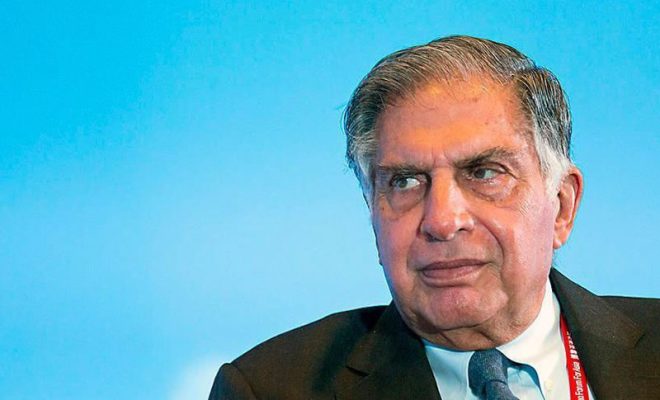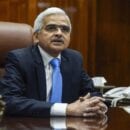Ratan Tata Dies at 86: 10 Facts About India’s Most Respected Business Icon

Corporate India said goodbye to one of its most distinguished personalities, former Tata Group chairman Ratan Tata, who died in Mumbai on Wednesday at the age of 86. Ratan Tata passed away in Mumbai after a period of hospitalization in critical care. Specific details of his ailment remain undisclosed.
Ratan Tata, chairman of the company from 1991 to 2012, turned the Tata Group from a company mainly operating in India into a global company with revenues increasing fifty-fold. During his tenure, the group bought world-famous brands such as Jaguar Land Rover and Tetley Tea, making India a significant player in the global market.
Ratan Tata is a man of great humanity and he was at his best during one of the worst phases of Indian history, 26/11. The terrorist attack was on the Taj Mahal Palace Hotel, a Tata property, for which Ratan Tata was not just the CEO of the organization but a leader in the true sense of the word. He coordinated the relief efforts; all employees who needed medical attention got treated; and all the employees and guests who got affected were compensated.
10 Facts About Ratan Tata
1. An Exalted Education and Lowly Origins
Ratan Tata was born on December 28, 1937, during the British rule in India, and was taken in by his grandmother at the opulent Tata Palace. He had the best education and did his higher studies overseas at the Riverdale Country School in New York and later an architecture degree at Cornell University. He got his education from overseas, which gave him a basic understanding of the global business environment.
2. The Solitary Titan
Ratan Tata had a life that is contrary to most of the billionaires that are portrayed today. He was never married, he was solitary, and loved the mundane things in life. He was a car enthusiast and also a pilot, and during his spare time, he would test new models of Tata cars or fly airplanes – a passion, which also extended to technology beyond business.
3. Starting from the Ground Up
When Ratan Tata joined the company in 1962 he took an uncharacteristic decision of starting his career with Tata Steel from the level of a production line worker. This decision to work in blue-collar gave him a unique perspective of the business from the bottom up. His practical experience was beneficial for him when he became the chairman of the group.
4. The People’s Car Revolution
Among all the initiatives of Ratan Tata, one of the most potential was the creation of the Tata Nano. Introduced in the year 2008 at $2,200 his vision of bringing car ownership to millions of Indian families was well captured in the Nano. Despite being unprofitable for business it demonstrated his passion for future-oriented and socially responsible management practices.
5. Supporting the Development of the Startup Environment
Apart from his corporate career at the Tata Group, Ratan Tata became a significant role in Indian startups. He has invested directly in more than 50 startup companies some of which include Ola Electric, Paytm among others. His investment was marked by technological advancement and social returns and he provided support to young innovators with their ideas.

Also Read | PM Narendra Modi Lays Foundation Stones for Projects Worth 7,600 Crores in Maharashtra
6. A Philanthropic Heart
Ratan Tata’s philanthropy best defines him. He also raised the Tata Trusts which own 66 percent of Tata Sons to one of the largest philanthropic organizations in India. All the trusts fund millions of programs in the fields of education, healthcare, and rural development improving the lives of millions of people throughout the country.
7. The Succession Saga
Cyrus Mistry becoming the Tata Group chairman and succeeding Ratan Tata in 2012 was one of the biggest news stories in India’s corporate world. The dismissal of Mistry in 2016 extended in a legal dispute which makes succession in family-managed companies an interesting topic and Ratan Tata’s strong belief in the Tata group’s ethos and goals.
8. Global Education – Indian Values
Ratan Tata’s education at the Harvard Business School was a good background for his technical education at Cornell. This international experience along with the strong Indian values formed his business acumen and made him well equipped to forge the best of the eastern and western business.

9. Ethical Ownership Model
Ratan Tata continued with the distinctive organizational structure of the Tata Group in which the majority of shares were owned by charitable trusts. This was to make sure that a good part of the group profits was being reinvested back into society thus paving the way for ethical practice, within the corporate world.
10. A Legacy of Honors
Over his successful career, Mr Ratan Tata was honored with many awards and was decorated with the Padma Vibhushan and Padma Bhushan, the top two civilian awards in India. The ethical, socially responsible leadership that he adopted got him acclaim throughout the world and the current Prime Minister Shri Narendra Modi said, “Shri Ratan Tata Ji is reckoned as a compassionate soul and an extraordinary human being.”



